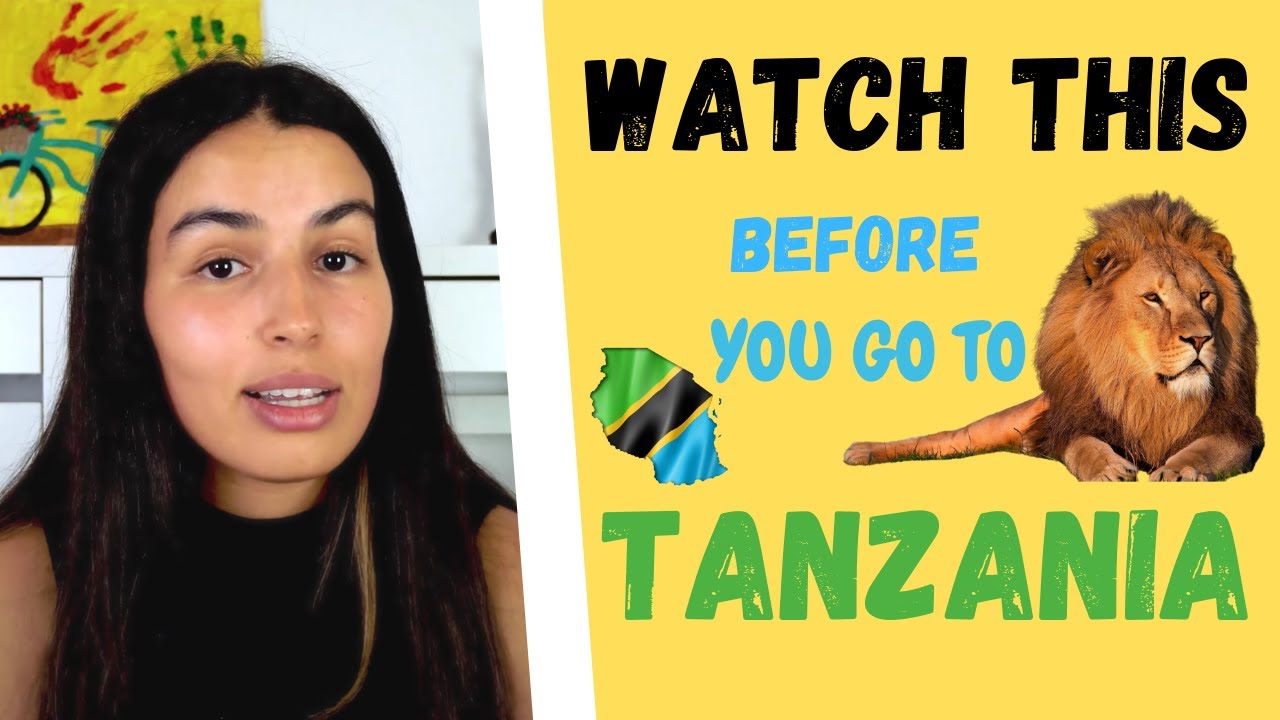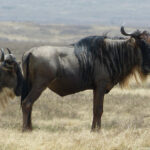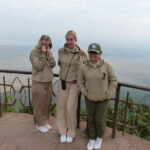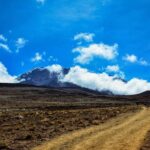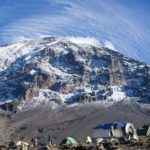Tanzania is home to the Serengeti, a vast ecosystem renowned for its annual migration of over 1.5 million wildebeest. Before you embark on this awe-inspiring adventure, it’s crucial to be well-prepared. Knowing what to expect can enhance your travel experience immensely.
Understanding local customs and preparing for varying climates is crucial. For instance, the best time to witness the wildebeest migration is between June and October. Additionally, familiarize yourself with visa requirements and ensure your vaccinations are up-to-date to safeguard your health while exploring this breathtaking country.

Essential Travel Documents and Health Requirements for Tanzania
Traveling to Tanzania requires a valid passport and a visa. Most travelers can obtain a visa upon arrival, but applying in advance at a Tanzanian embassy is recommended. Ensure your passport has at least six months of validity remaining. Check if your country is eligible for a visa on arrival. It’s always good to verify current requirements before your departure.
Keeping your health in check is essential when traveling to Tanzania. Make sure you are up-to-date on routine vaccines such as MMR, DPT, and Hepatitis A and B. Additionally, it’s important to get vaccines for Yellow Fever and Typhoid. Malaria is prevalent in Tanzania, so take preventive medication. Don’t forget to pack mosquito repellent and a first aid kit.
When preparing your travel documents, one key item to remember is travel insurance. Travel insurance covers medical emergencies, trip cancellations, and lost baggage. It’s a small price to pay for peace of mind. Make sure your insurance covers travel in Africa. Keep a copy of your insurance policy and emergency contact information.
Before you go, visit your doctor or a travel clinic. They can provide specific health advice based on your itinerary. Consult your doctor about malaria prevention and any other health concerns. Staying healthy while traveling ensures you can fully enjoy your trip. Always prioritize your health and safety to make the most of your Tanzanian adventure.
Visa policies and necessary vaccinations
Obtaining a visa for Tanzania is generally straightforward. Travelers from most countries can get a visa on arrival at the major airports and land borders. However, applying for an eVisa online can save time. The eVisa process typically takes a few days, and you will receive your visa via email. Make sure to have a printed copy of your eVisa when you arrive.
Necessary vaccinations are crucial for staying healthy during your trip. The Yellow Fever vaccine is required if you are coming from or transiting through a Yellow Fever endemic area. Familiarize yourself with other recommended vaccines, including Hepatitis A, Typhoid, and Rabies. These vaccines help protect against diseases common in Tanzania. Consult a travel clinic several weeks before departure.
It’s highly recommended to take preventive measures against malaria. Malaria is spread by mosquitoes and can be severe. Medications such as Malarone, Doxycycline, or Mefloquine are commonly prescribed. Additionally, sleeping under a mosquito net can reduce the risk. Always follow your doctor’s instructions for malaria prevention.
Ensuring all vaccinations and medications are up to date is essential for a hassle-free trip. Make a checklist to manage your vaccinations and visas. Packing a small first aid kit and necessary travel documents will add peace of mind. Remember, being well-prepared can make your Tanzanian adventure safe and enjoyable. Prioritize health and proper documentation to make the most of your journey.
Best Times to Visit Tanzania’s Key Attractions
The dry season, from June to October, is the best time to visit Tanzania for safari adventures. During this period, the weather is mild, and animals gather around water sources, making wildlife viewing exceptional. The Serengeti and Ngorongoro Crater offer some of the best safari experiences. This is also the peak season for the Great Migration of wildebeest and zebras. Booking accommodations early is essential during these busy months.
If you plan to climb Mount Kilimanjaro, consider going between January and March or June and October. These months provide the best weather conditions for trekking. The views are clear, and the trails are less crowded. However, temperature variations can be extreme, so pack accordingly. Guided tours can help ensure a safe ascent.
For those interested in beach holidays, Zanzibar is an incredible destination. The best time to visit Zanzibar is from June to October during the dry season. Another excellent period is December to February, when the weather is warm and sunny. Relax on pristine beaches or explore the vibrant culture and historic sites.
Bird watchers may prefer traveling between November and April. This is the short rainy season, and many migratory birds can be spotted. Visit Lake Manyara and Tarangire National Parks for the best bird-watching opportunities. During this time, the landscapes are lush and green, making it a photographer’s paradise. Always check local conditions and wildlife activity to plan your visit effectively.
Cultural Etiquette and Safety Tips While Traveling in Tanzania
Understanding and respecting the local culture is essential when traveling in Tanzania. Tanzanians are known for their hospitality and politeness. Greetings are important, and a handshake is a common form of greeting. Always use your right hand when shaking hands or giving and receiving things. Learning a few words in Swahili, such as “hello” (jambo) and “thank you” (asante), can go a long way.
Dress modestly, especially in rural areas and places of worship. Women should avoid wearing short skirts or revealing tops. Men should refrain from going shirtless in public. This shows respect for local customs and helps you blend in. It’s also respectful to remove your shoes before entering someone’s home.
When taking photographs, always ask for permission, especially when photographing people. Some Tanzanians may be uncomfortable with being photographed. Respect their wishes if they decline. Taking photos in certain areas, like military zones, can be prohibited. Always follow local regulations regarding photography.
Safety is a priority while traveling in Tanzania. Avoid walking alone at night and be cautious in crowded areas. Keep your belongings secure and be aware of pickpockets. It’s a good idea to keep copies of important documents like your passport separately from the originals. Using reputable travel agencies, like Rolux Safaris, can ensure a safe and organized trip.
Health safety is just as important. Drink bottled or boiled water to avoid waterborne diseases. Be cautious about where you eat; choose places that maintain good hygiene. It’s wise to carry hand sanitizer and use it before meals. Staying healthy will make your travels much more enjoyable.
Following these cultural etiquette and safety tips can enhance your travel experience. They help you connect with locals and stay safe. Remember, respecting the culture and staying vigilant are keys to a memorable trip. Enjoy the rich culture and stunning landscapes Tanzania has to offer!
Key Takeaways
- Secure a visa before traveling to Tanzania.
- Get necessary vaccinations like Yellow Fever and Malaria prevention.
- Respect cultural norms, including greetings and modest clothing.
- Choose reputable tours to ensure safety during your trip.
- Stay vigilant with your belongings for a safe experience.

